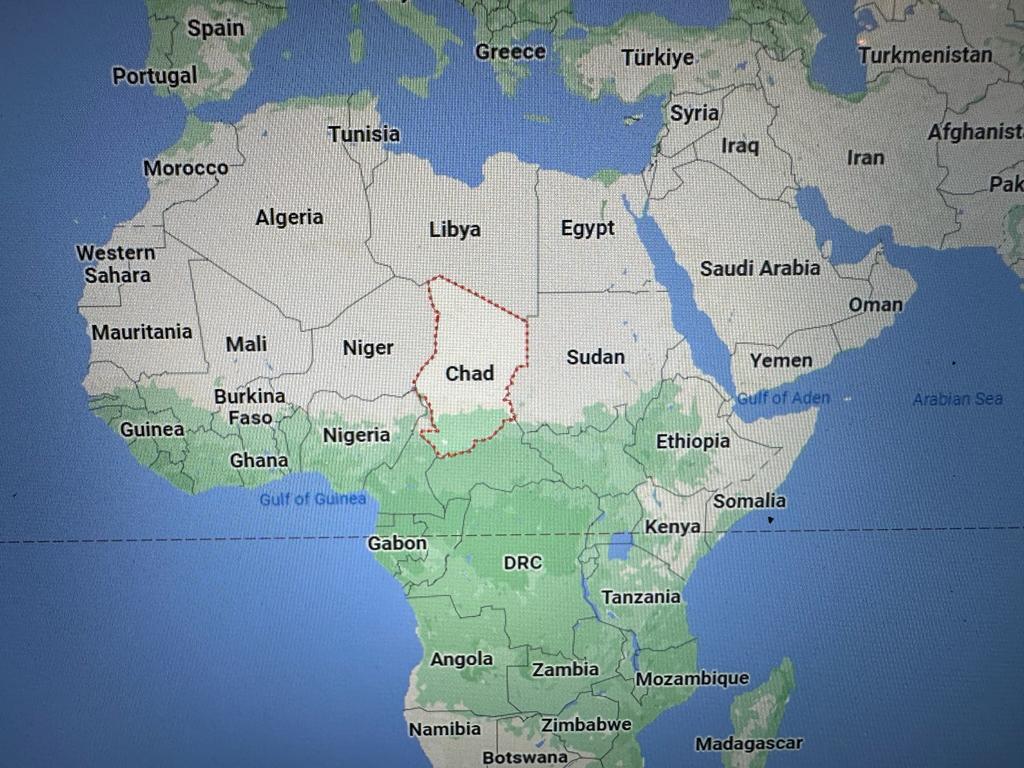Chad, officially known as the Republic of Chad, is a landlocked country located in Central Africa. It is bordered by Libya to the north, Sudan to the east, the Central African Republic to the south, Cameroon and Nigeria to the southwest, and Niger to the west.
Chad has a population of over 16 million people and its capital and largest city is N’Djamena. The official languages are French and Arabic, with over 100 other languages spoken throughout the country.
The economy of Chad is primarily based on agriculture, with cotton and cattle being the most important exports. The country also has significant oil reserves, which has led to a growth in the oil industry in recent years.
Chad has a diverse cultural heritage, with over 200 ethnic groups, each with its own unique traditions, customs, and languages. The country is known for its colorful music, dance, and art, as well as its traditional handicrafts such as pottery, weaving, and embroidery.
Chad has faced a number of challenges in recent years, including political instability, armed conflict, and poverty. However, the government has taken steps to address these issues and has made progress in improving infrastructure, expanding education, and developing the economy.
The economy of Chad is primarily based on agriculture, with cotton and cattle being the most important exports. However, the country also has significant oil reserves, which has led to a growth in the oil industry in recent years.
Chad’s economy is heavily reliant on its oil exports, which account for the majority of the country’s export earnings. However, the oil sector has been vulnerable to fluctuations in global oil prices, which has led to economic instability in the past.
Apart from the oil industry, agriculture is an important sector in Chad’s economy, with about 80% of the population engaged in subsistence farming. The main crops include cotton, sorghum, millet, cassava, and peanuts. Livestock production is also important, with cattle, sheep, and goats being the most common livestock.
Chad is one of the poorest countries in the world, and poverty remains a major challenge. The government has made efforts to address this through programs such as the National Development Plan and the Poverty Reduction Strategy, which aim to improve infrastructure, expand education, and develop the economy in a sustainable manner.
- Choose a reputable cargo shipping company: Research and compare different cargo shipping companies to find one that is reliable, experienced, and offers competitive rates.
- Prepare your cargo: Make sure your cargo is properly packaged, labeled, and documented. Depending on the type of cargo, you may need to provide additional documentation, such as customs declarations and invoices.
- Choose a shipping method: Air freight is usually faster but more expensive, while sea freight is slower but more affordable. Choose the method that best suits your needs and budget.
- Book your shipment: Contact your chosen shipping company to book your shipment and provide them with all the necessary information and documentation.
- Track your shipment: Most cargo shipping companies offer online tracking, which allows you to monitor the progress of your shipment and receive updates on its status.
- Receive your cargo: Once your cargo arrives in Chad, you will need to clear it through customs and pay any applicable fees or taxes before you can receive it.
It’s important to note that the specific requirements and procedures for sending cargo to Chad may vary depending on the type of cargo, its value, and other factors. It’s a good idea to consult with a reputable cargo shipping company or a customs broker for more information and guidance.

